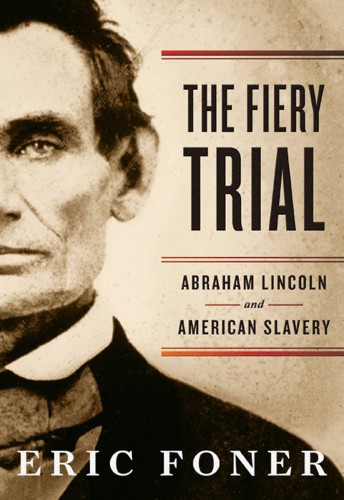
The Fiery Trial
Abraham Lincoln and American Slavery
کتاب های مرتبط
- اطلاعات
- نقد و بررسی
- دیدگاه کاربران
نقد و بررسی

August 2, 2010
A mixture of visionary progressivism and repugnant racism, Abraham Lincoln’s attitude toward slavery is the most troubling aspect of his public life, one that gets a probing assessment in this study. Columbia historian and Bancroft Prize winner Foner (Free Soil, Free Labor, Free Men) traces the complexities of Lincoln’s evolving ideas about slavery and African-Americans: while he detested slavery, he also publicly rejected political and social equality for blacks, dragged his feet (critics charged) on emancipating slaves and accepting black recruits into the Union army, and floated schemes for “colonizing” freedmen overseas almost to war’s end. Foner situates this record within a lucid, nuanced discussion of the era’s turbulent racial politics; in his account Lincoln is a canny operator, cautiously navigating the racist attitudes of Northern whites, prodded—and sometimes willing to be prodded—by abolitionists and racial egalitarians pressing faster reforms. But as Foner tells it, Lincoln also embodies a society-wide transformation in consciousness, as the war’s upheavals and the dynamic new roles played by African-Americans made previously unthinkable claims of freedom and equality seem inevitable. Lincoln is no paragon in Foner’s searching portrait, but something more essential—a politician with an open mind and a restless conscience. 16 pages of illus., 3 maps.

January 1, 2015
Foner's nuanced account contends that Lincoln unwaveringly opposed slavery throughout his life and moved in a consistent, calculated antislavery direction during his presidency. Race emerged as a focal point when it became necessary to convey how enlisting African Americans was vital to saving the Union. (LJ 8/10)
Copyright 2015 Library Journal, LLC Used with permission.

























دیدگاه کاربران